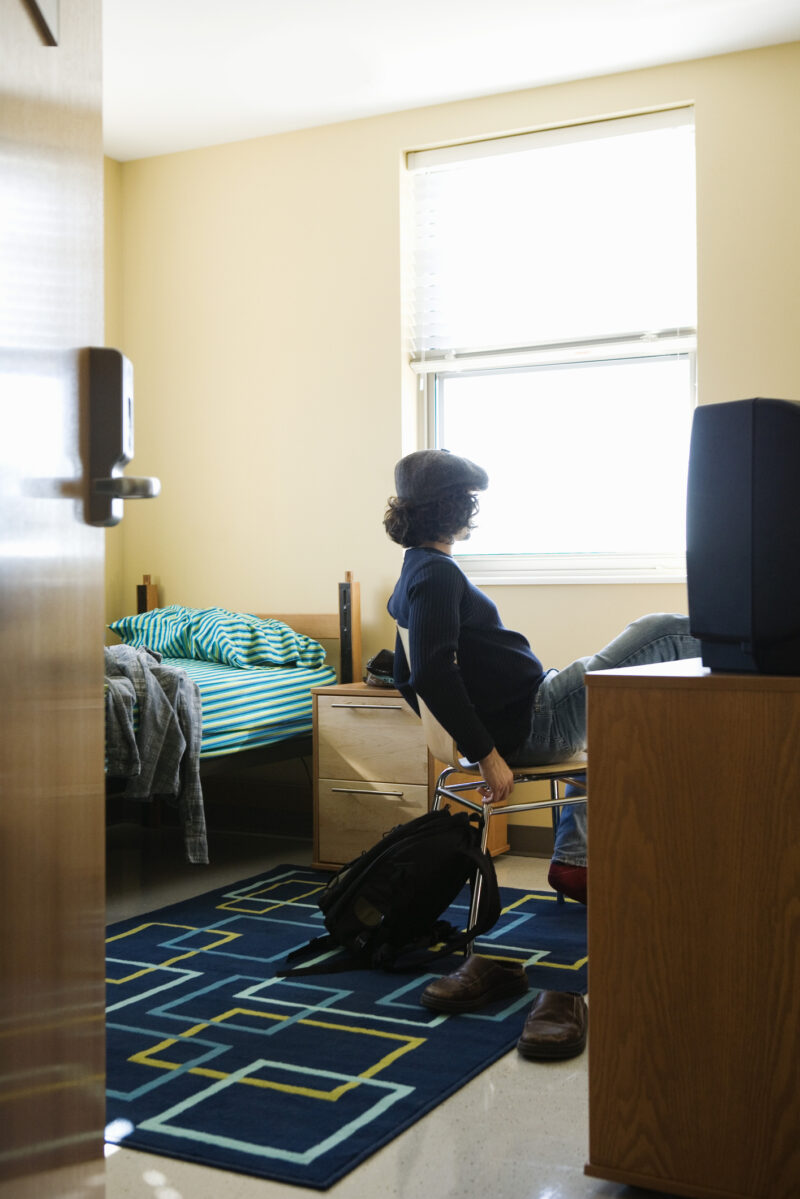
How Can You Identify and Treat Depression in College Students?
3 min.
Depression in college students is rising. Understand symptoms, causes, and support options for managing student mental health challenges.
College years are often viewed as a time of growth, independence, and opportunity. But for many, university life also comes with overwhelming stress, mental health challenges, and increased risk of depression. Rates of college student depression are climbing, with surveys like the Healthy Minds Study showing alarming levels of distress on nearly every college campus.
Unlike occasional sadness, depression — also known as depressive disorder — is a serious mental health issue that affects mood, motivation, and academic performance. Among university students, depression often coexists with anxiety disorders or other mental health concerns, making it harder to detect and treat. Early recognition and treatment are critical for student success and overall well-being. This piece will explore the symptoms, causes, and treatment options for student depression.

Don’t let depression control your college journey
Connect with a licensed therapist today and find the right treatment plan to support your well-being during college.
Causes of depression in college students
Depression in college students is rarely caused by a single factor. Instead, it develops from a combination of influences such as:
- Academic pressure: High expectations, long study hours, and test anxiety.
- Life transitions: Adjusting from high school to independence can be isolating.
- Social challenges: Struggles with relationships, identity, or social anxiety disorder.
- Financial stress: The weight of tuition, loans, and part-time jobs.
- Biological factors: A family history of mental health disorders or chemical imbalances.
Symptoms of depression in college students
Recognizing depression symptoms early can help prevent worsening mental health. Warning signs include:
- Persistent sadness or hopelessness.
- Loss of interest in once-enjoyed activities.
- Trouble concentrating, impacting academic performance.
- Sleep issues—either too much or too little.
- Fatigue and low motivation.
- Thoughts of self-harm or suicidal thoughts.
For many university students, these symptoms are mistaken for laziness or stress, delaying necessary support.
Coping strategies and self-help
While depression can feel overwhelming, small steps can help:
- Establish regular exercise and healthy eating habits.
- Stay connected with supportive friends or mentors.
- Create structured routines to ease academic and personal stress.
- Use campus resources like counseling centers and student groups.
- Practice mindfulness or journaling to manage negative thoughts.
These strategies won’t replace professional care, but can reduce anxiety levels and support recovery.
Professional treatment options for depression
Professional treatment options for depression are essential for supporting student mental health. Therapy—such as cognitive behavioral therapy (CBT), talk therapy, or group therapy—can be tailored to address the unique challenges of college-related anxiety and depression. In some cases, medication like antidepressants may be prescribed to help stabilize mood. For students who are unable to visit a clinic in person, online therapy provides accessible and flexible care. Many universities also offer free or low-cost campus counseling services to support their students.
Friends, professors, and family can help by listening without judgment, offering reassurance, and encouraging professional help. Recognizing that depression in college students is a legitimate mental health disorder—not laziness or weakness—is essential. With a mix of professional care, support networks, and healthy coping strategies, recovery is possible. By taking action early, students can reclaim their energy, motivation, and mental health—and thrive during their university life.
If symptoms ever escalate to suicidal thoughts or a panic attack, it’s critical to seek immediate help through campus crisis services or a mental health hotline. If you’re experiencing suicidal thoughts or are in danger of harming yourself, this is a mental health emergency. Contact The Suicide & Crisis Lifeline 24/7 by calling or texting 988.
How Charlie Health can help
If you or a loved one is struggling with your mental health and could use more than once-weekly support, Charlie Health is here to help. Charlie Health’s virtual Intensive Outpatient Program (IOP) provides behavioral health treatment for people dealing with serious mental health conditions. Our expert clinicians incorporate evidence-based therapies into individual counseling, family therapy, and group sessions. With this kind of holistic online treatment, managing your mental health is possible. Fill out the form below or give us a call to start healing today.

